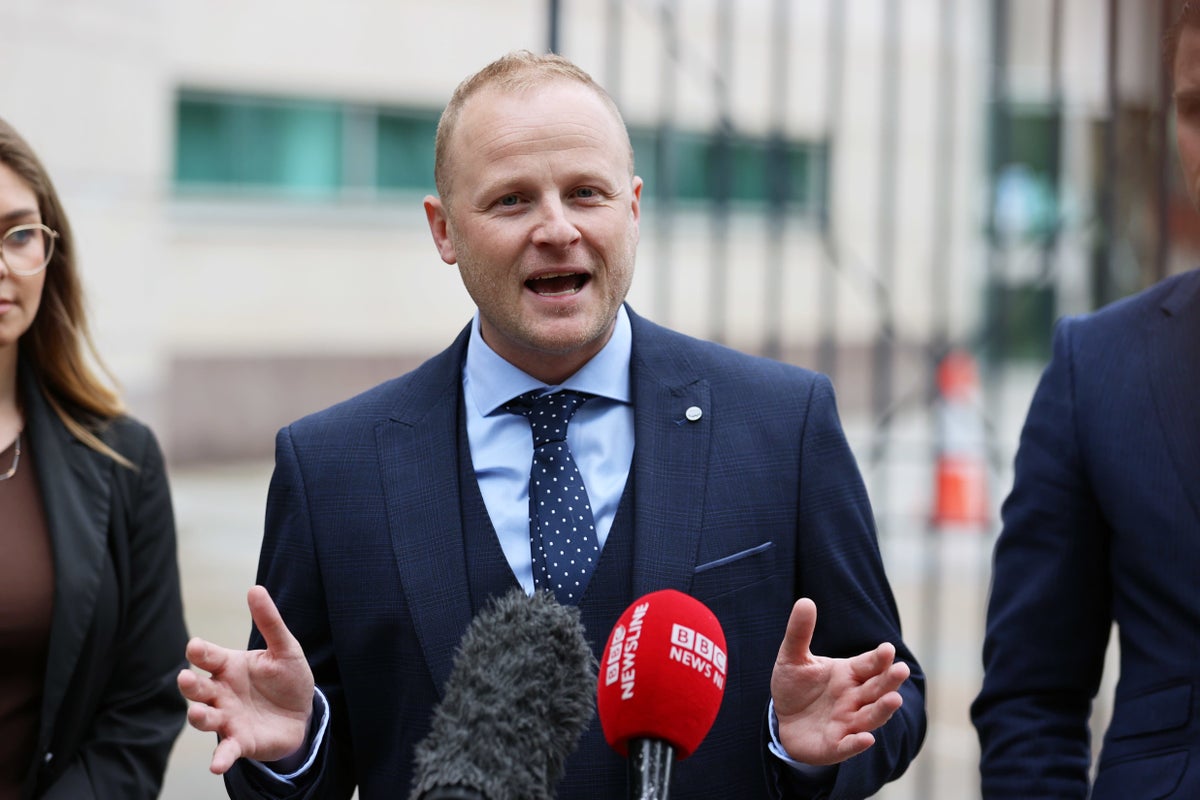
Three men, including loyalist activist Jamie Bryson and former Sinn Fein MLA Daithi McKay, have been cleared at Belfast Crown Court of charges relating to misconduct in public office.
Mr Bryson, 35, from Rosepark in Donaghadee, and co-accused Thomas O’Hara, 41, from Lisnahunshin Road in Cullybackey, were found not guilty of conspiracy to commit misconduct in public office.
The charges had related to a Stormont committee hearing that examined the sale of the National Asset Management Agency’s (Nama) Northern Ireland assets in 2015.
Mr McKay, 43, from Loughan Road in Dunnamanagh – who was chairman of the finance committee at the time – was found not guilty of misconduct in public office.
Mr Bryson and Mr McKay said there are now questions for the Public Prosecution Service (PPS) over why the prosecution was brought.
The PPS has said the available evidence had indicated it was in the public interest to prosecute.
Trial judge Gordon Kerr KC said he believed Mr Bryson had lied while giving evidence in the case, but said he was not involved in a criminal conspiracy.
The long-running Nama trial had related to Mr Bryson’s 2015 appearance before the Stormont committee, chaired by Mr McKay, which was investigating the sale of Nama’s Northern Ireland assets to a US investment fund.
The criminal probe was launched after the publication of leaked Twitter messages between Mr Bryson, Mr McKay and the account of Mr O’Hara, who at the time was a Sinn Fein activist in north Antrim.
Mr McKay quit as an MLA within hours of the Twitter messages being published in August 2016.
The Stormont Finance Committee inquiry was set up in 2015 amid political controversy over the multimillion-pound sale of Nama’s property portfolio.
Nama, the so-called bad bank created by the Irish government to deal with the toxic loans of bailed-out lenders during the economic crash, sold its 800 Northern Ireland-linked properties to investment fund Cerberus for £1.2 billion.
Giving evidence to the committee in 2015, Mr Bryson used Assembly privilege to name former DUP leader Peter Robinson as a beneficiary of the sale.
The then-first minister of Northern Ireland strongly rejected any suggestion he benefited from the deal. All other parties involved in the transaction also denied wrongdoing.
Delivering his judgment in the non-jury trial on Thursday, the judge said: “Despite his lies in court, I am sure that Mr Bryson was at all times communicating with Mr McKay.
“I am sure that the communications were designed to give Mr Bryson the best advice and guidance to maximise his chances of giving evidence.
“My analysis of the messages do not show any occasion where Mr McKay undertook to say or do anything outside his duties as chairman to ensure Mr Bryson’s evidence would be in open session.
“Clearing Mr Bryson, the judge said the evidence did not establish there had been a criminal conspiracy between him and Mr McKay.
He said: “In the absence of an agreement, the conspiracy charge must fail.”
Turning to Mr McKay, the judge said there was “no doubt he deliberately misled the committee to ease the way for Mr Bryson’s presentation”.
The judge pointed out the Assembly had its own code of conduct and said there was “no precedent for a prosecution in these circumstances”.
Clearing Mr McKay, he added: “I do not consider it my role to expand the offence.”
The judge said the evidence against Mr O’Hara “fell well short” of anything which would convince him of his guilt.
